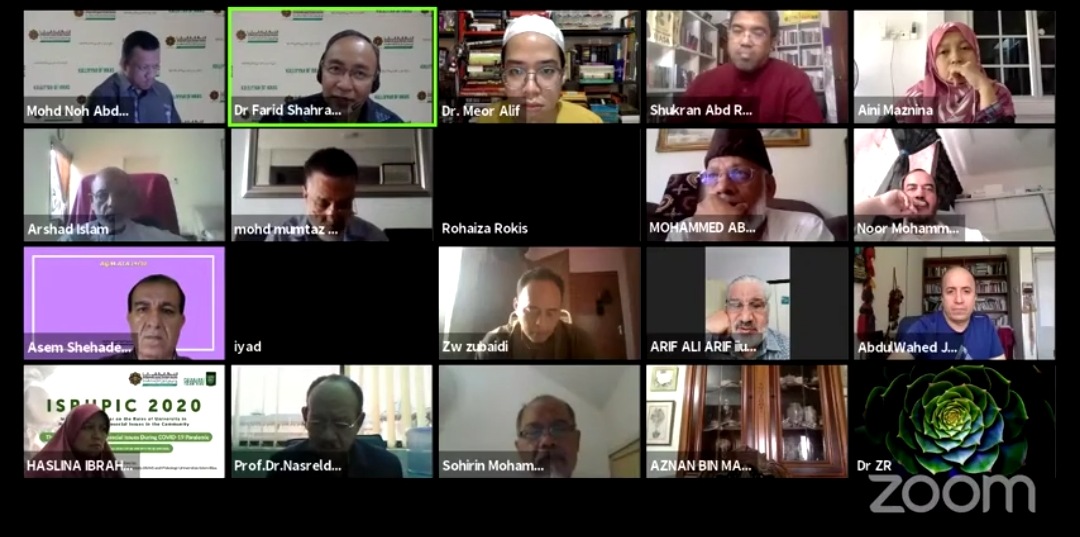By Haslina Ibrahim and Shukran Abd Rahman
Some of the academics grumbled about having to cope up with what they assumed as ˜the high expectations and the increase of workloads that are encroaching their work-life balance and wellbeing.
While this is a fact prevalent in every job-sector, academics at higher education institutions should realise that their job description includes teaching, consultancy/services, research, innovation, publication, and academic management.
Teaching and researching are intertwined, and they are the anchor to the rest of the job descriptions. The dynamicity of tasks, duties, and responsibilities among academics as knowledge workers therefore is determined by his awareness and readiness to subscribe to this set of job descriptions.
Exposure to the job descriptions since the early career stage is important in order to prepare an academic with the demands of his/her job responsibilities. In addition, he/she should be ready for changes as the job requires him/her to continue to learn, relearn and co-learn so he/she would become a reputable scholar instead of an armchair scholar.
It is with this understanding of the job descriptions of a knowledge worker, that the Kulliyyah of IRKHS has conducted her Ibadah Camp 2020 by focusing on developing clear understanding about important attributes that academic members should possess.
Given the need to adhere to the standard operating procedures (SOP) during the movement control order (MCO) and the conditional movement control order (CMCO), the Ibadah Camp for the year 2020 was held virtually. It consists of four virtual sessions that spanned within a month-time, featuring four eminent speakers.
The four sessions have managed to gather all academics and administrative staff at KIRKHS to be inspired by the inputs related to their duties and responsibilities, linking them with the attributes of Khalifah, Amanah, Iqra and Rahmatan Lil Alamin (KhAIR).
Our Ibadah Camp was a blend of academic discourse added with spiritual spices and herbs. The four sessions have enabled us to take some time to do self-reflection and be reminded of our real purposes of being in this University and in this profession.
Dato Hamidon Abdul Hamid from Department of Fundamental and Interdisciplinary Studies kicked-start the discourse by exerting the importance of amanah in accomplishing our tasks as academics, underscoring the needs to have high integrity when accomplishing the tasks as lecturers, researchers or authors.
Prof. Dato Dr. Noor Inayah, Rector of Baitulmal Professional College discussed the concept of Rahmah; and shared her views on the ways to radiate mercy to the world by becoming effective academic members. She underscored the importance to hold to the idea that our work would bring impacts to the university, students, and the community at large.
Hence, we were reminded to reflect if activities or programmes conducted in our capacity as knowledge workers would be bringing the necessary impacts. We were also reminded of the importance of being sincere in accomplishing our duties and responsibilities in order to be counted as ibadah which will be accorded with His blessings and deserving His rewards.
We had Dr. Mohd Farid Shahran from Institut Kefahaman Islam Malaysia (IKIM) or Institute of Islamic Understanding Malaysia to speak on something dear to everyone involved in an academic-based organisation. He discussed the importance of Iqra in achieving ˜Hikmah. Dr. Farid had enlightened us on the meaning of hikmah as referring to the knowledge of the reality of things, putting things in their proper positions, bringing action in accordance with knowledge and attainment of decisive proofs useful to the strengthening of religious belief.
So overloaded with meanings and the preamble to them is Iqra, which is essentially the business of knowledge workers in an academic based organisation. We were then reminded on whether we have really done Iqra’ in the right manner so as to arrive at hikmah, in the way we think, in the way we act, and in the way we make impact on others.
In another conversation with Prof. Dato’ Dr. Asma, the President of Academy of Sciences Malaysia, she alerted that the University should have emphasised on hikmah in the academic activities accomplished by her academics, so as to substantiate the Universitys Sejahtera Academic Framework (SAF).
She underscored the essentiality to internalise the concept of Khalifah, as an indispensable responsibility should academics truly embrace their engagement as an ibadah. Indeed, an ibadah if rightly executed bears values. For a profession where monetary profit is not calculated in the KPI, KIP and KRI, the ROV (Return of Values) should aspire the academics to stay true to their duties and responsibilities.
˜Academics are not wagers and they are workers of knowledge who could bring about changes in the society. She stressed the idea that changes start with oneself before he or she can inspire others.
Indeed, the knowledge, guidance and experiences shared by the four speakers are remarkable inputs for the Kulliyyah to augment, revise and develop her planned interventions to advance academic activities in the year 2021 and onwards.
The Ibadah Camp that marked the closing of 2020 and greeted us in 2021 is indeed a metaphor that the journey towards KhaiR is indeed a lifetime journey. So long that we hold to the amanah, use hikmah in accomplishing our task and be agile with our task as khalifah, we should be able to commit in our own ways as knowledge workers to carry out the noble task of realising His Mercy to the world.***
(Assoc. Prof. Dr. Haslina Ibrahim is Deputy Dean, Responsible for Research and Innovation, KIRKHS, and an academic in the Department of Usul al-Din and Comparative Religion)
(Prof. Dr. Shukran Abd Rahman is Dean, KIRKHS, and an academic in the Department of Psychology)
